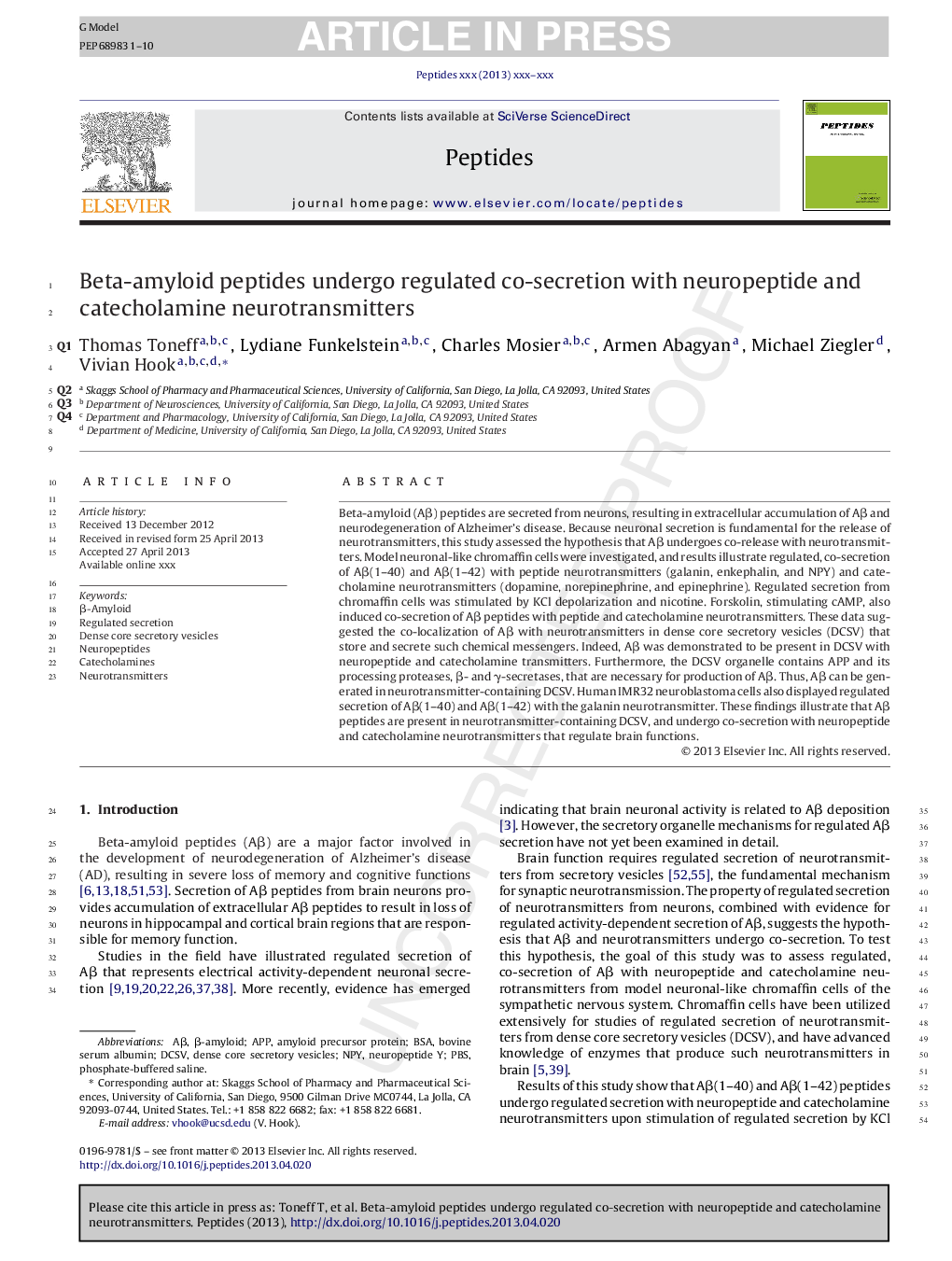| Article ID | Journal | Published Year | Pages | File Type |
|---|---|---|---|---|
| 8348625 | Peptides | 2013 | 10 Pages |
Abstract
Beta-amyloid (Aβ) peptides are secreted from neurons, resulting in extracellular accumulation of Aβ and neurodegeneration of Alzheimer's disease. Because neuronal secretion is fundamental for the release of neurotransmitters, this study assessed the hypothesis that Aβ undergoes co-release with neurotransmitters. Model neuronal-like chromaffin cells were investigated, and results illustrate regulated, co-secretion of Aβ(1-40) and Aβ(1-42) with peptide neurotransmitters (galanin, enkephalin, and NPY) and catecholamine neurotransmitters (dopamine, norepinephrine, and epinephrine). Regulated secretion from chromaffin cells was stimulated by KCl depolarization and nicotine. Forskolin, stimulating cAMP, also induced co-secretion of Aβ peptides with peptide and catecholamine neurotransmitters. These data suggested the co-localization of Aβ with neurotransmitters in dense core secretory vesicles (DCSV) that store and secrete such chemical messengers. Indeed, Aβ was demonstrated to be present in DCSV with neuropeptide and catecholamine transmitters. Furthermore, the DCSV organelle contains APP and its processing proteases, β- and γ-secretases, that are necessary for production of Aβ. Thus, Aβ can be generated in neurotransmitter-containing DCSV. Human IMR32 neuroblastoma cells also displayed regulated secretion of Aβ(1-40) and Aβ(1-42) with the galanin neurotransmitter. These findings illustrate that Aβ peptides are present in neurotransmitter-containing DCSV, and undergo co-secretion with neuropeptide and catecholamine neurotransmitters that regulate brain functions.
Related Topics
Life Sciences
Biochemistry, Genetics and Molecular Biology
Biochemistry
Authors
Thomas Toneff, Lydiane Funkelstein, Charles Mosier, Armen Abagyan, Michael Ziegler, Vivian Hook,
